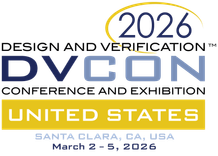Efficient Portable Programming-Sequence Development with PSS
Bringing an SoC-level system out of reset into an operational state involves configuring the component subsystems and IPs by properly programming hundreds or thousands of IP registers. Running behavior involves programming yet more registers and in-memory descriptors. Stake holders, including block-DV, subsystem, SoC verification, silicon bring-up teams, rely on having early access to accurate programming sequences in order to shift-left their activities. Many of these stakeholders also depend on being able to efficiently modify/adjust the programming sequences to exercise different legal configurations and operations.
Current approaches to deriving bring-up sequences often require block-level teams to create some C code that captures key register-programming sequences to hand off to subsystem and SoC teams. Creating this content is an extra task that the block-level team would not normally perform, and is often deferred until late in the verification cycle. This limits the ability of subsystem and SoC teams to left-shift their activities. The programming sequences are typically highly directed, and cannot be easily modified to exercise different scenarios. Finally, because creating C-code programming sequences is disconnected from the primary work of a block-level DV team, they are at high risk of becoming outdated.
This tutorial will also provide an overview of the PSS features in development for PSS 3.0, as well as an introduction to the PSS methodology library currently under development by the working group.
Speakers:
- Adnan Hamid, Breker
- Tom Fitzpatrick, Siemens EDA
- Matthew Ballance, AMD
- Sergey Khaikin, Cadence
- Prabhat Gupta, AMD
